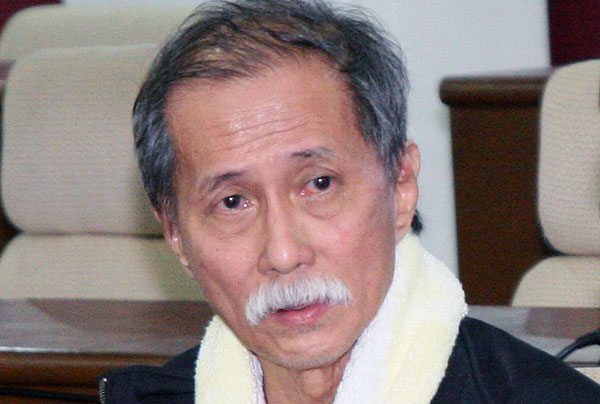ROAD rage murder convict Rolito Go is now a free man.
This after the Supreme Court’s Third Division issued a release order following a November 28 ruling upholding the grant of the writ of habeas corpus to the ex-businessman.
The order quoted the dispositive portion of the Third Division’s November 28 ruling denying a petition filed by former Bureau of Corrections chief Rainier Cruz.
Cruz had questioned the ruling of the Muntinlupa Regional Trial Court (RTC) Branch 204 declaring that “Go’s sentence was validly commuted from reclusion perpetua to 30 years.”
“Wherefore, the petition is denied. The Resolution is immediately executory. Director of the Bureau of Corrections is ordered immediately to release petitioner Rolito T. Go from detention unless he is detained for any lawful cause,” the ruling stated.
Go filed a habeas corpus petition on January 30, 2014 seeking his release. He argued that his original prison sentence, which was to expire on January 31, 2022, should have expired on August 21, 2013 upon deduction of allowances for good conduct and other privileges.
On April 28, 2014, the Muntinlupa RTC granted Go’s petition and issued the writ of habeas corpus on the ground that his sentence was validly commuted. The lower court said Go’s further detention was illegal.
Wrong remedy
Former corrections officials challenged the lower court’s decision before the Court of Appeals, but the petition was denied because the proper remedy should be a petition for review on certiorari before the Supreme Court. The high tribunal later upheld the RTC ruling.
“As correctly resolved by the trial court, while only the President can commute a prison sentence, Articles 70 and 97 of the Revised Penal Code (RPC) recognize partial reduction or commutation of sentences by providing that for penal penalties, the duration shall be computed for 30 years and the allowances of good conduct must be applied on top of the [good conduct time allowance] accorded to an inmate with a colonist status,” the Supreme Court ruling stated.
A prisoner with colonist status is allowed to stay out of his detention cell and obtain good conduct credits.
Factoring in the privileges accorded to Go such as his good conduct time allowance, special credit time allowance and his preventive imprisonment of nine months and 16 days, he “has completed serving his sentence of 30 years on August 21, 2013, which he commenced to serve on April 30, 1996.”
Cancer-stricken
While Go is under the custody of the New Bilibid Prison, he is confined in a hospital as he is battling Stage 4 colon cancer.
Go was convicted for the killing of De La Salle University student Eldon Maguan in a 1991 road rage incident.
Maguan, 25, was driving his car on the one-way Wilson Street in San Juan, heading to P. Guevarra Street on July 2, 1991. Go was also driving on Wilson Street but entered the wrong direction, according to the report of the San Juan Police.
Maguan’s and Go’s vehicles nearly collided with each other, prompting the latter to get off his vehicle. Go confronted and shot Maguan, who died seven days later.
Go fled the scene. Police retrieved an empty shell and one round of live ammunition for a 9mm caliber pistol.
A security guard of a nearby restaurant witnessed the incident and took note of the plate number of Go’s vehicle. The car’s ownership was traced to Elsa Ang Go.
On July 8, 1991, Go presented himself to the police, accompanied by two lawyers. He was detained and that same day, a complaint was filed against him by the police for frustrated homicide.
On July 11, 1991, the prosecutor charged Go for murder before the RTC, wherein no bail was recommended. In 1993, Go was sentenced to up to 40 years in prison.
On August 14, 2012, Go was reported missing at the New Bilibid Prison. He returned the day after.


